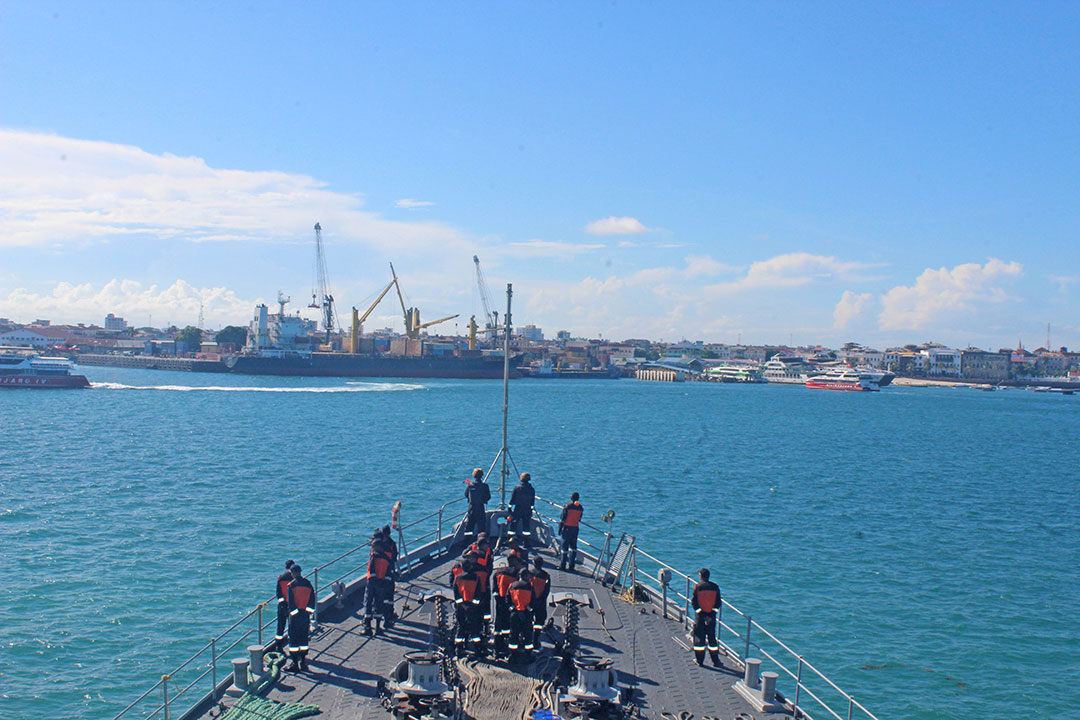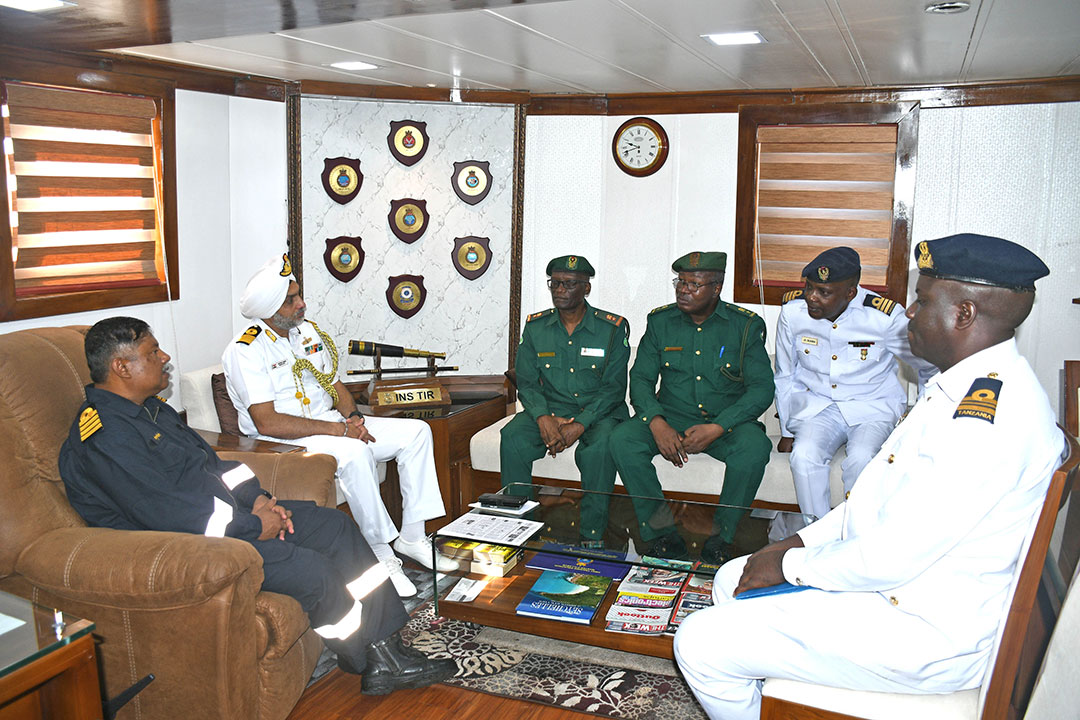Trilateral Exercise Strengthens Maritime Security in Indian Ocean
ADF STAFF
Piracy is making a resurgence in the western Indian Ocean, and the region is rife with other sea crimes such as illegal fishing, drug smuggling, and human and weapons trafficking.
Against that backdrop, the second edition of the India-Mozambique-Tanzania Trilateral Exercise (IMT TRILAT 24) was held in late March in the southern Mozambican port of Maputo; the northern Mozambican port of Nacala; and Zanzibar, the island off mainland Tanzania.
The weeklong exercise enhanced the nations’ maritime security collaboration and increased their understanding of the scope of their maritime capabilities and shared objectives. The first IMT TRILAT was held in 2022.
The harbor phase of this year’s exercise included training related to casualty evacuation; diving; damage control; firefighting; visit, board, search and seizure (VBSS) procedures; and medical classes.
The sea phase covered practical aspects of countering asymmetric threats — such as those related to terrorism — and additional VBSS training, boat handling, nighttime at-sea maneuvers, bridge surveillance and marksmanship training.
Throughout the week, joint operations were conducted on the Mozambican naval ship Namatili, the Tanzanian naval ship Fatundu, and the Indian naval ships Tir and Sujata.
Mozambique and Tanzania are on the Mozambique Channel, a 1,600-kilometer waterway between Madagascar and East Africa that carries about 30% of global tanker traffic. Sea crimes in the region are widely believed to help fund terrorist groups.

Violence throughout the region has threatened shipping companies and overall stability for years. Maritime threats in East Africa have increased recently as international navies relocated from the Indian Ocean to the Red Sea, where they protect maritime traffic from attacks by Yemen’s Houthi rebels.
In response, the Indian Navy began conducting maritime security operations in the Arabian Sea, Gulf of Aden and off Somalia. The country has deployed more than 5,000 personnel at sea, and more than 20 ships, while surveillance aircraft reached 900 hours of flying by late March, according to a report by Africa Ports & Ships and defenceWeb.
These deployments highlight India as a “proactive contributor” to international maritime stability, Vice Adm. Anil Kumar Chawla, who retired in 2021 as head of India’s southern naval command, told The Associated Press.
“We are not doing it only out of altruism,” Chawla said. “Unless you are a maritime power you can never aspire to be a global power.” Already a regional power, India is positioning itself “as a global player today, an upcoming global power,” he added.
The Indian Navy has had recent success countering Somali pirates who began a resurgence in the region in December after a six-year lull.
The Indian Navy in late March rescued 23 Pakistani nationals from an Iranian fishing vessel highjacked by Somali pirates in the Arabian Sea. Nine armed pirates were on board the vessel, which was about 90 nautical miles southwest of Socotra, a Yemenese island.
“We remain committed to ensuring maritime security in the region and safety of seafarers, irrespective of nationalities,” the Indian Navy said in a statement.
Also in March, the Indian Navy seized a cargo vessel that was hijacked in December by Somali pirates. During the operation, 17 crew members on board the Maltese-flagged bulk cargo vessel MV Ruen were rescued, and 35 pirates surrendered.


Comments are closed.